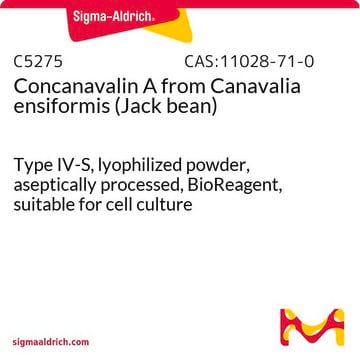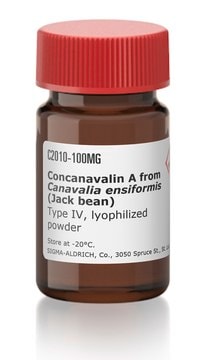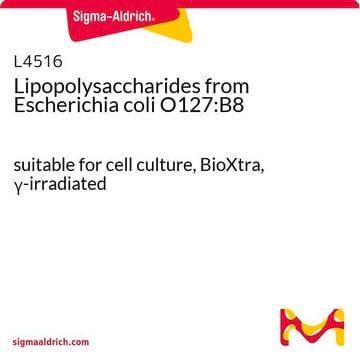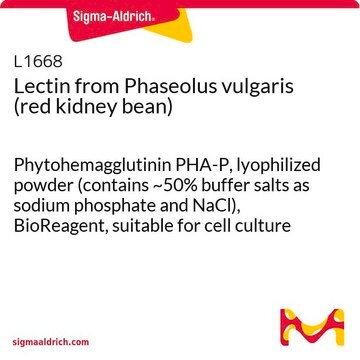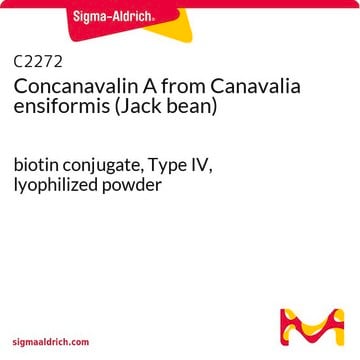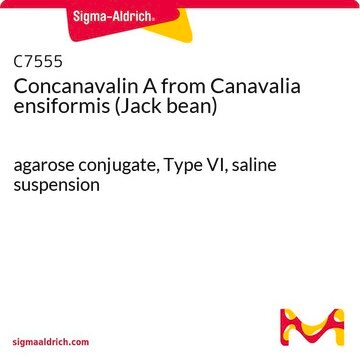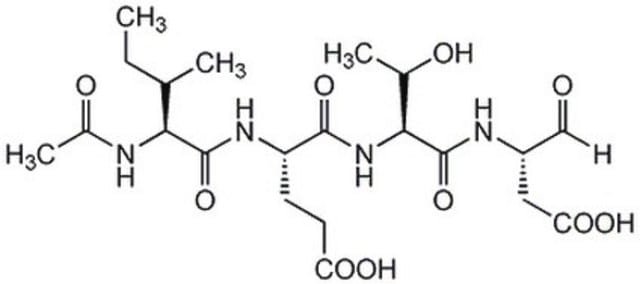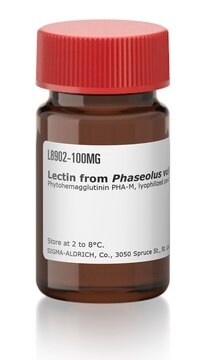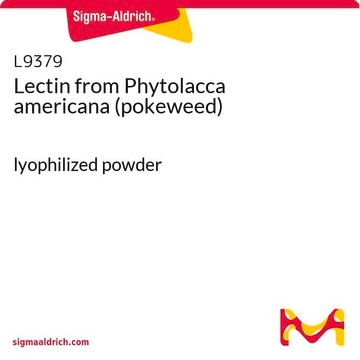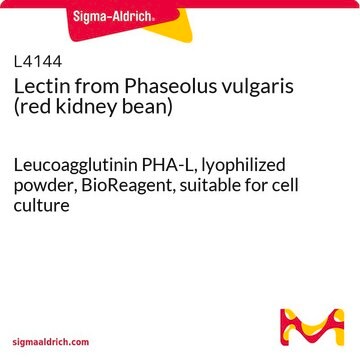C0412
Concanavalin A from Canavalia ensiformis (Jack bean)
Type IV-S, lyophilized powder, γ-irradiated, BioReagent, suitable for cell culture
Sinónimos:
Con A
About This Item
Productos recomendados
Nivel de calidad
esterilidad
γ-irradiated
tpo
Type IV-S
Línea del producto
BioReagent
formulario
lyophilized powder
técnicas
cell culture | mammalian: suitable
impurezas
salt, essentially free
solubilidad
PBS: 5 mg/mL, slightly hazy
H2O: soluble, slightly hazy
temp. de almacenamiento
−20°C
¿Está buscando productos similares? Visita Guía de comparación de productos
Aplicación
- to induce spleen blastogenesis
- to generate ConA blast targets from B6 and lpr spleen cells
- to stimulate splenic lymphocytes from estrogen-and placebo-treated mice
Acciones bioquímicas o fisiológicas
Nota de análisis
Palabra de señalización
Danger
Frases de peligro
Consejos de prudencia
Clasificaciones de peligro
Repr. 2 - Resp. Sens. 1 - Skin Sens. 1
Código de clase de almacenamiento
11 - Combustible Solids
Clase de riesgo para el agua (WGK)
WGK 3
Punto de inflamabilidad (°F)
Not applicable
Punto de inflamabilidad (°C)
Not applicable
Equipo de protección personal
dust mask type N95 (US), Eyeshields, Faceshields, Gloves
Certificados de análisis (COA)
Busque Certificados de análisis (COA) introduciendo el número de lote del producto. Los números de lote se encuentran en la etiqueta del producto después de las palabras «Lot» o «Batch»
¿Ya tiene este producto?
Encuentre la documentación para los productos que ha comprado recientemente en la Biblioteca de documentos.
Los clientes también vieron
Nuestro equipo de científicos tiene experiencia en todas las áreas de investigación: Ciencias de la vida, Ciencia de los materiales, Síntesis química, Cromatografía, Analítica y muchas otras.
Póngase en contacto con el Servicio técnico